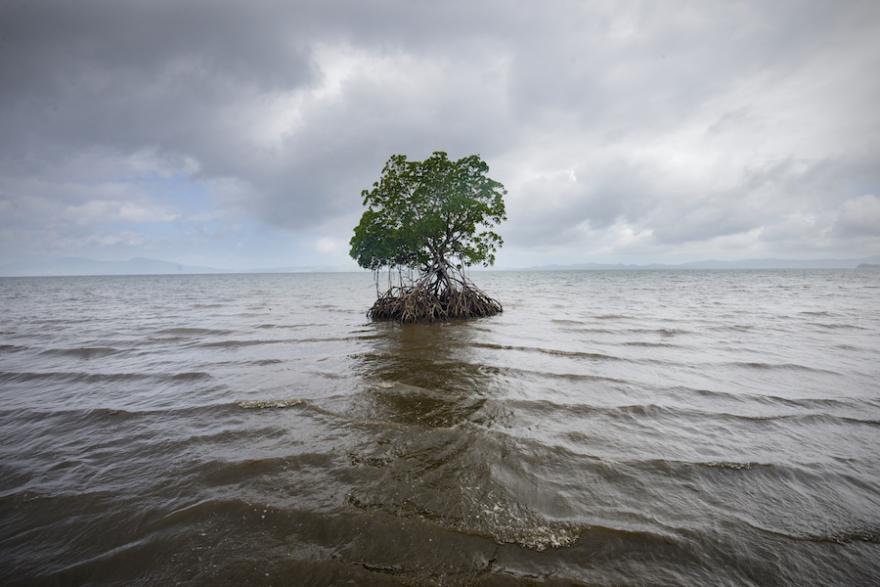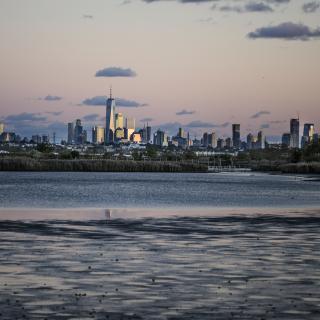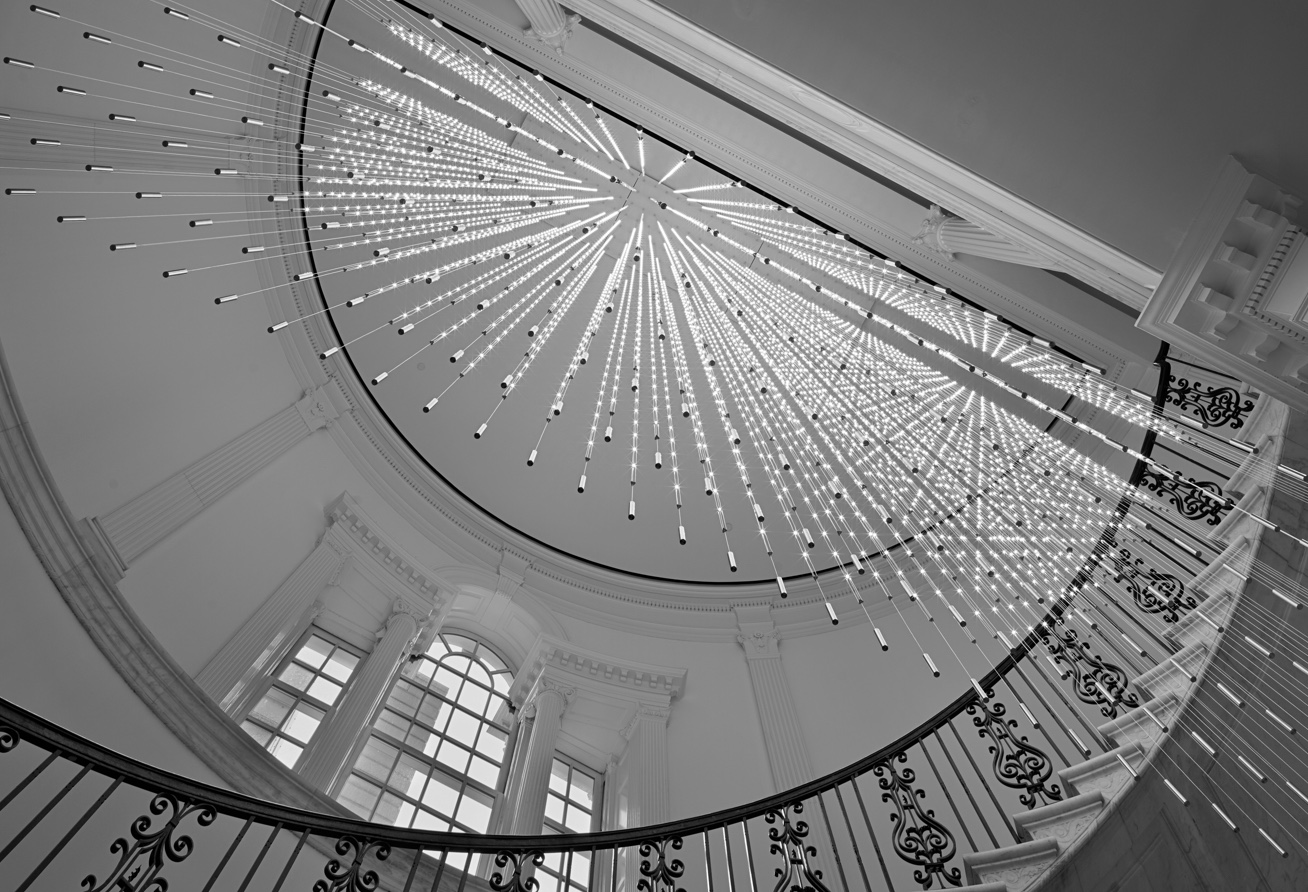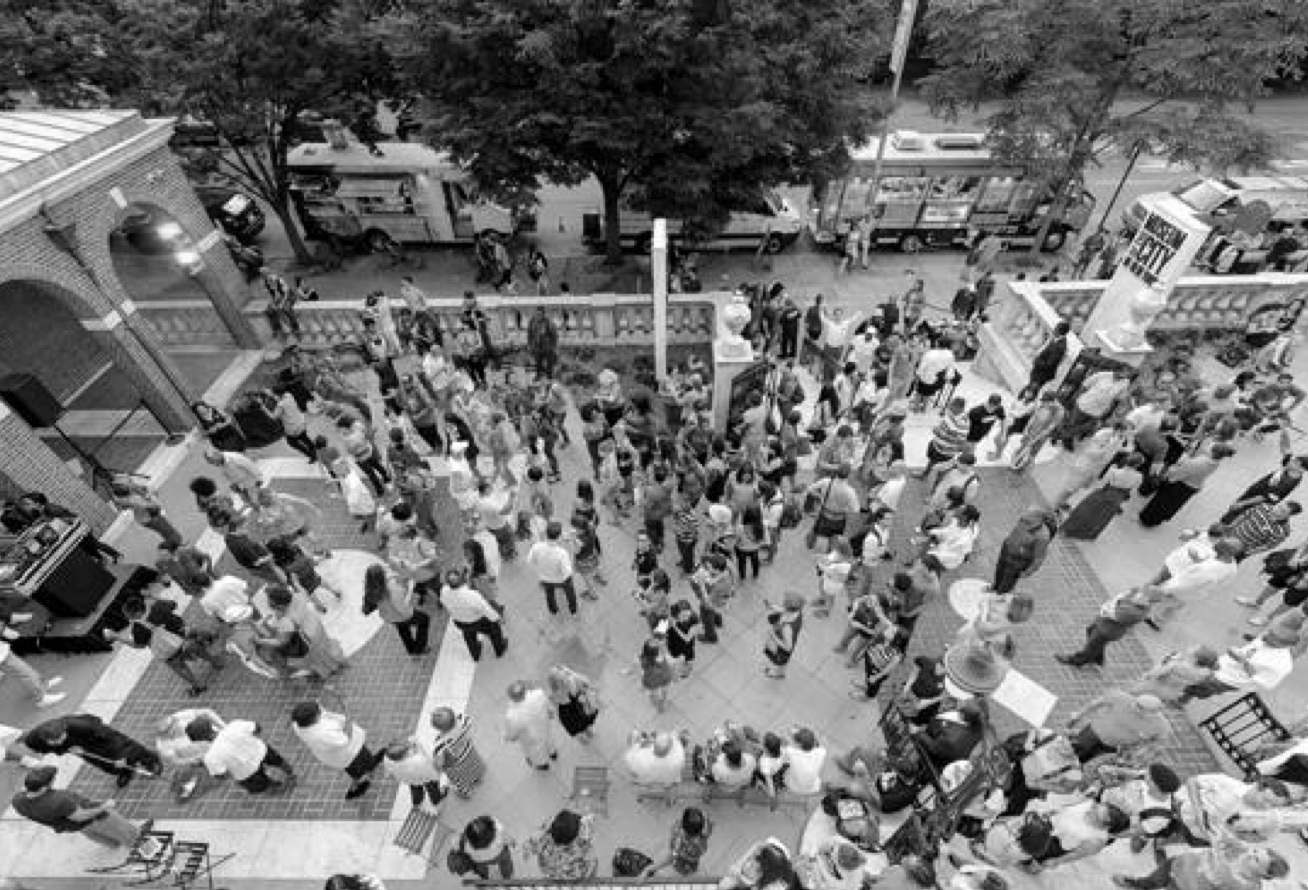Rising Tide: Artist's Statement

Rising Tide looks at the human consequences of rising sea levels. Due to the climate crisis, glaciers all over the world are retreating and the ice sheets of Greenland and Antarctica are melting at an alarming pace, adding to the volume of water in our oceans. Slowing currents and topographical changes as a result of the retreat of glaciers are also critical factors contributing to rising waters.
The cost of rising sea levels to humans in the future will be dramatic. The entire central Pacific nation of Kiribati, for example, will have to relocate. It is estimated that in Bangladesh about 50 million people will need to move from the delta region by 2050. No one knows where they will go. The East Coast of the United States is experiencing sea level rise three times higher than the global average. Experts predict that major metropolitan areas, including Miami Beach, will need to be evacuated by 2060.
Rising Tide provides vivid visual documentation of how the climate crisis already affecting places where people live: Greenland with its melting glaciers, Kiribati, Fiji, the Carteret Islands in Papua New Guinea, Bangladesh, the Guna Yala archipelago in Panama, Jakarta, the Marshall Islands, the Netherlands, and the United States. Even before the sea floods land permanently, seawater intrudes at high tides, making once-fertile land no longer viable for crops and water undrinkable. This exhibition shows people who live in these affected areas, but also those who have already moved to safer ground. The exhibition also considers what can be done to prevent great loss of land and asks if we are doing enough with the knowledge we have. Can the world really meet the goal that temperatures should not rise by more than 1.5 degrees Celsius or will we continue on this path and make many parts of the planet unlivable for future generations? If so, this will create international conflict and cause massive migration from coastal regions.
I hope that Rising Tide will contribute to a better understanding of what is already happening today and will make us realize that there is no time to waste.
Kadir van Lohuizen | NOOR



